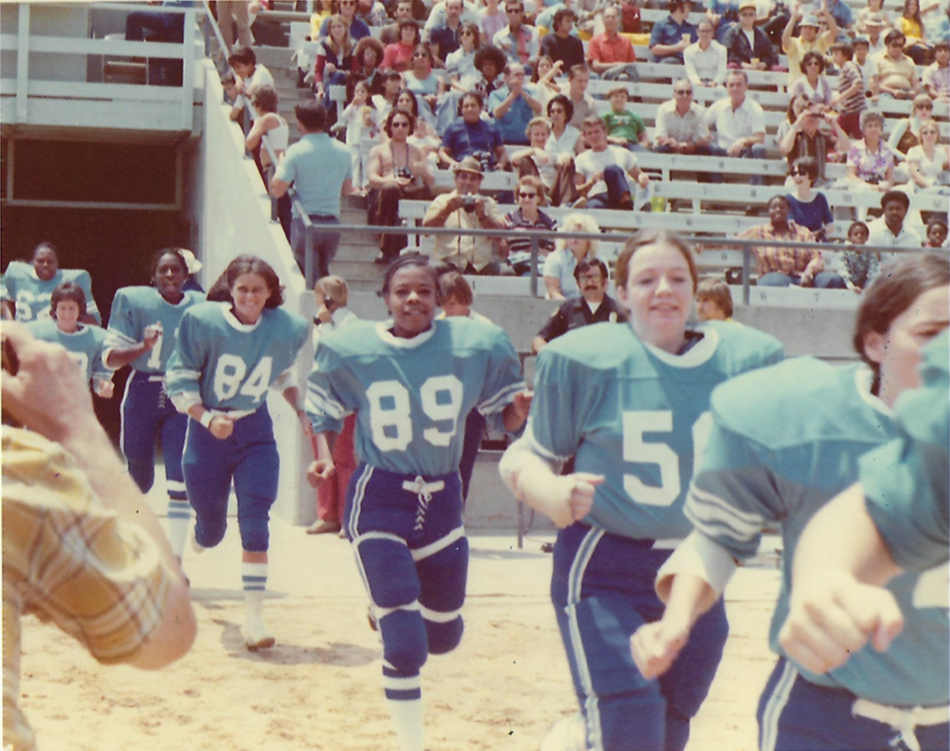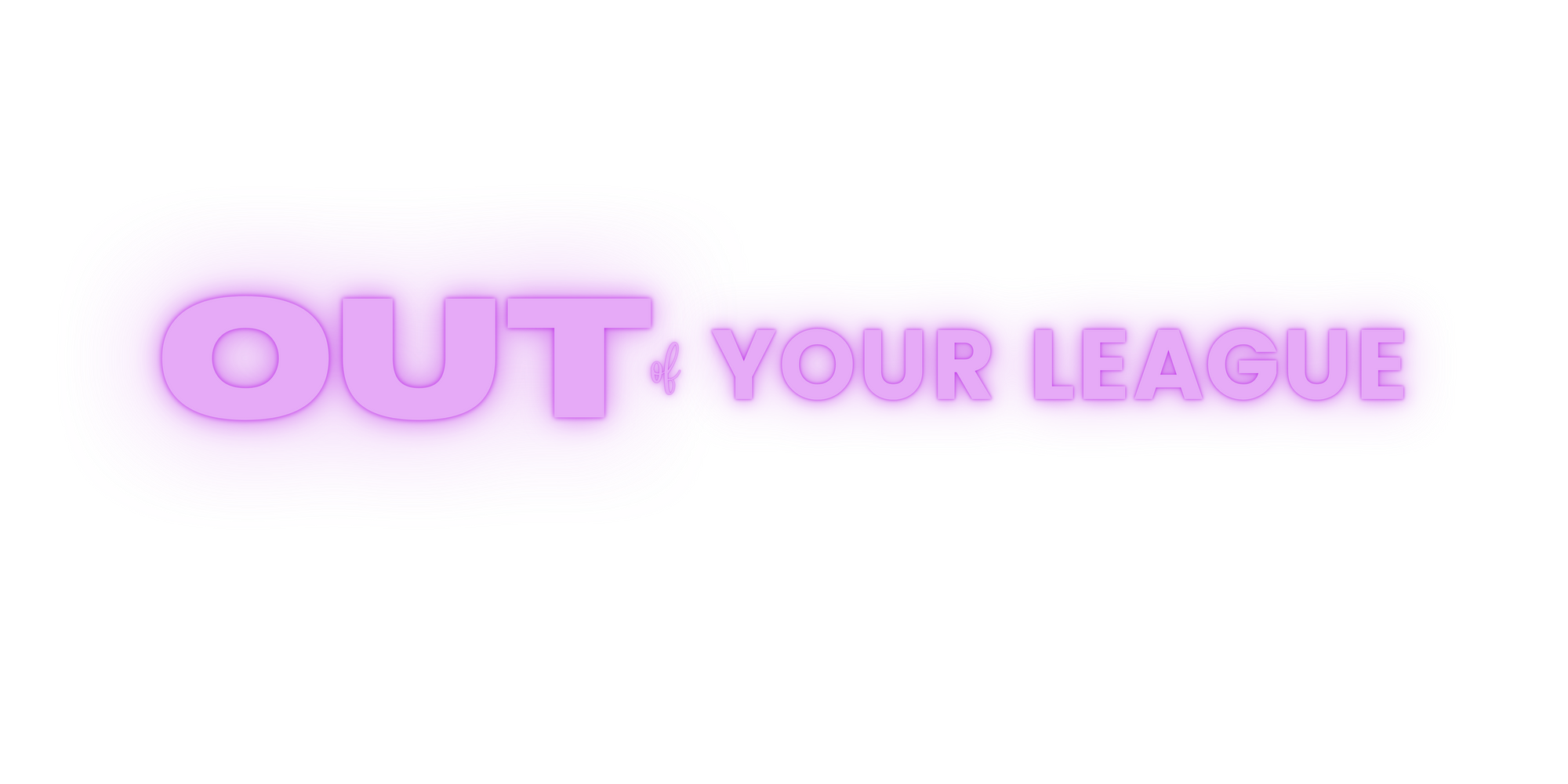reporting my book about football helped me decide to leave my marriage
talking to my elders became the straw that broke the camel's back

Hi! There are a bunch of new people here this week due to this little ol’ newsletter getting its first citation in a Real Publication™. Thanks to Shannon Keating at Buzzfeed for shouting out my newsletter about the straightwashing of queer stories in two recent Netflix documentaries.
If you haven’t read her piece about “A Secret Love” yet, it’s very good and you should: “Just because straight people still can’t or won’t recognize queer love for what it is doesn’t mean queer people are living a lie until they define their lives in explicit ways that straight people can no longer ignore,” Keating writes. “What makes this story such a beautiful one (which does come through, thankfully, in the movie’s strongest moments) has little to do with how long Pat and Terry kept this secret, and everything to do with the enduring power of queer love — closeted or not.”
Also, stay tuned next week for a series on Jewish woman athletes for Jewish-American Heritage Month. If you have any recommendations for athletes I should feature, reply to this email and let me know!

My book manuscript was due this week. I put the date on my calendar a year ago, but even then I doubted that I’d be able to write a reported non-fiction book in a year — even with a co-author. It was an ambitious goal but I felt inspired to jump in and see if we could do it. I planned to mostly take the year off freelancing, with my husband making enough to support us, and I’d focus almost exclusively on the book.
Then came my separation and eventual divorce, and moving three times in six months as a result.
Then came coronavirus and quarantine, with me and my co-author, Lyndsey, both quarantining with children.
Needless to say, it turned out that a year to write the book was ambitious, mostly for reasons well outside our control.
The good news is that, even with pushing the deadline to September, it shouldn’t affect our pub date — we should still be good to go for football season 2021 (that’s fall for the, like, 10 non-sports people here).
So why do I feel so shitty about it?
Perhaps if I had written more urgently in the year I’ve been working on the book, the quarantine wouldn’t have slowed things down.
Maybe this is evidence that I’m in over my head and I will never be able to finish this book.
What if this is evidence of my failure as a writer, proving once and for all that I’m a fraud?
How quickly I can spiral to the place of self-doubt, how easily it goes from one missed deadline to some kind of commentary on my entire career.
On the day the book would have been due, I got a Facebook message out of the blue from a woman who said, “I used to play for the Toledo Troopers! I’d love to help you.”
A sign — keep going.
And the day after that, a message from one of the first women I’d tracked down when we started reporting, a woman named Starkey who played for the Dallas Bluebonnets. She’s taken to messaging me occasionally, usually with news about women in sports.
Starkey is loud, the kind of person who might be described as “a lot.” She’s butch, someone who has been read as a lesbian her entire life, someone who has spent her life being hypervisible as gay, even at a time when being gay was not a safe or acceptable thing to be.
She’s 30 years sober, so recovery is something else we have in common.
We didn’t talk about much, just that she missed sports and how Pride games have improved over the years. She sent me a photo of herself wearing a Dallas Mavericks Pride shirt, which she had on during the conversation. I had the overwhelming urge to reach through the screen and give her a hug.
The first time I talked to Starkey on the phone, I knew I wanted to ask about whether any of the women on the team were gay, and what impact — if any — that queerness had on the team. Our team on this book — me and Lyndsey, the authors, Remy, our editor at Bold Type Books, and JL, our agent at New Leaf Literary — are all queer women. We went into this project determined not to erase the queer history of the league we are writing about, but instead to highlight it and celebrate it. This book is a sports history book, it’s a women’s history book, it’s a queer history book. It is all of those things.

A photo of the Dallas Bluebonnets, courtesy of CoCo Manson (#50)
I wasn’t sure how I would bring it up. My time reporting on the queer women in the All-American Girls Professional Baseball League had made me cautious about asking questions about sexuality because so many of those women refused to talk about it. I didn’t want to offend anyone or scare them off from talking to me. But what I didn’t understand yet was that this league took place more than 25 years after the AAGPBL. It was a different era. And even if the gay players weren’t publicly out then, many of them are very out now.
I was just two or three minutes into my call with Starkey when she stopped me. “Wait, wait. You know we were all gay, right?” she boomed into the phone.
Everything in my body relaxed and I began to laugh. “Well, I figured that some of you were,” I said. “Since you brought it up, let’s talk about that!”
That was June of last year, and I was sitting in the TV room in the house I shared with my husband. I remember trying very hard not to mention the gender of my partner on the phone, wanting to feel an affinity with an elder of mine, wanting to be seen for the person I knew I was, the person I feared would be invisible the moment I used a pronoun or the word “husband.” It was an omission I’d found myself making a lot more often. Each progressive phone call I made to Bluebonnets players was another exercise in trying really hard not to talk about myself and hoping no one asked, while also desperately hoping they would see me as a kindred spirit.
I began to be resentful of my husband, to feel suffocated. I was like that frog in boiling water who hadn’t felt the heat progressively rising until it was so hot it was scalding. The pot I was sitting in was roiling all around me and I couldn’t take the heat any longer. Being married to a man no longer felt like something my queerness could exist within; being married to a man now felt like a lie.
A month after that June phone call with Starkey, I asked for a separation.
Now when we chat, I don’t feel the need to hide or protect anything. I cannot wait for you to meet Starkey and her teammates, and the rest of the women I’ve come to know, when this book publishes.
I also know that, while this is the hardest thing I’ve ever done, Lyndsey and I will see this book through. If not for me, if not for her, then for the hundreds of women who took the field at a time before Title IX, when women weren’t allowed to play most sports — let alone football.
Every time I get a message from one of them, it’s motivation to keep going. I may not always believe in myself, but these women have trusted me with their story, which tells me they believe in me and my ability to tell it. And whether they know it or not, these women, many of whom have been living their truth since before I was born, also helped me finally be able to fully live my own. For that, the very least I can do is finish this goddamn book.

What I Wrote This Week
- Why The Killings Of Sean Reed & Ahmaud Arbery Are Being Called Lynchings, Refinery29
“It’s not hard to understand why so many people would describe [the death of Arbery] as a lynching,” Rebecca Kavanaugh, a criminal defense and civil rights attorney, told Refinery29. “What is perhaps less understood is that a lynching doesn't have to look like that. Sean Reed being killed by police last night was just as much a modern-day lynching. Neither civilians nor police have the authority to execute people they suspect of crimes.”
